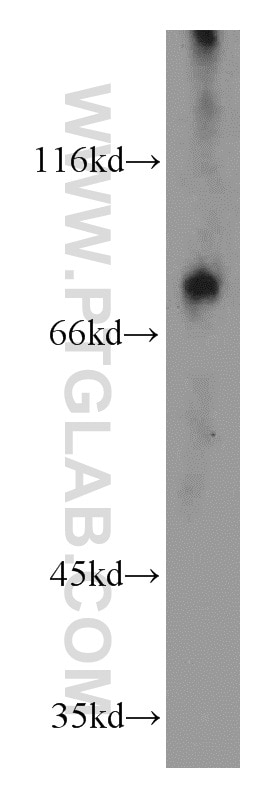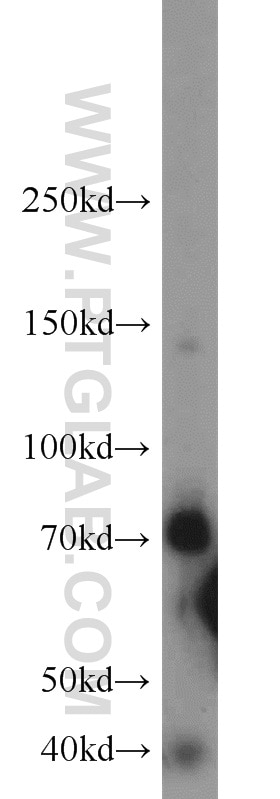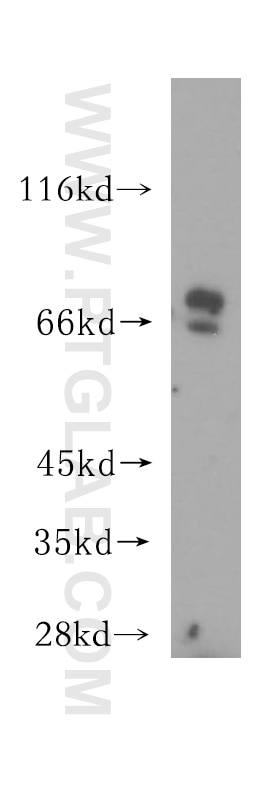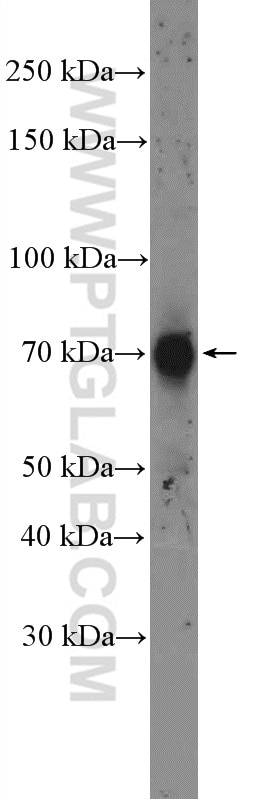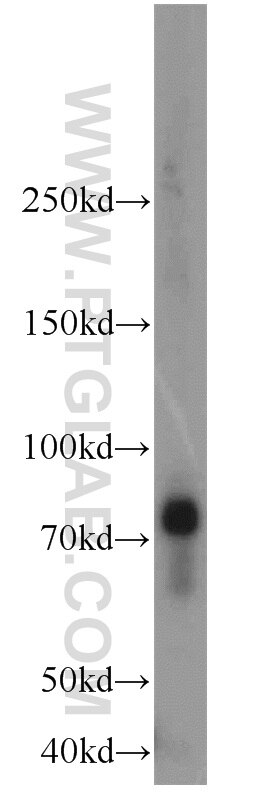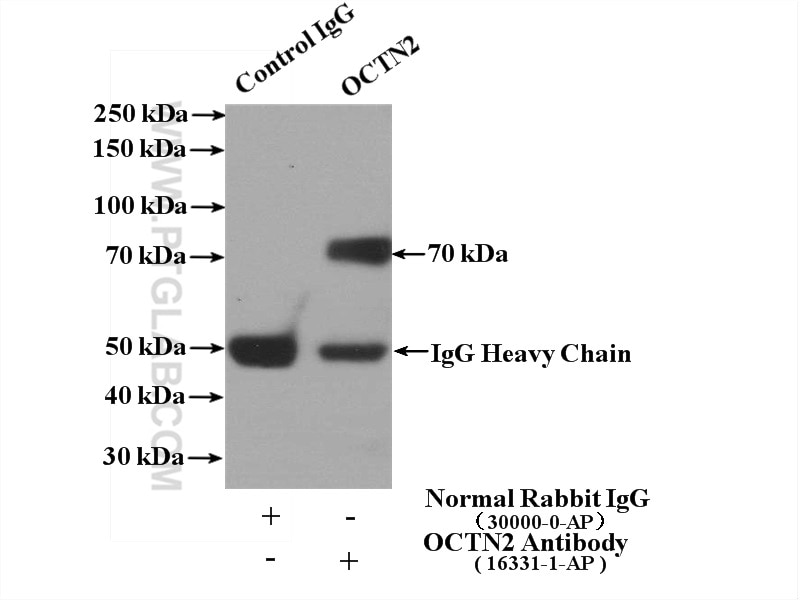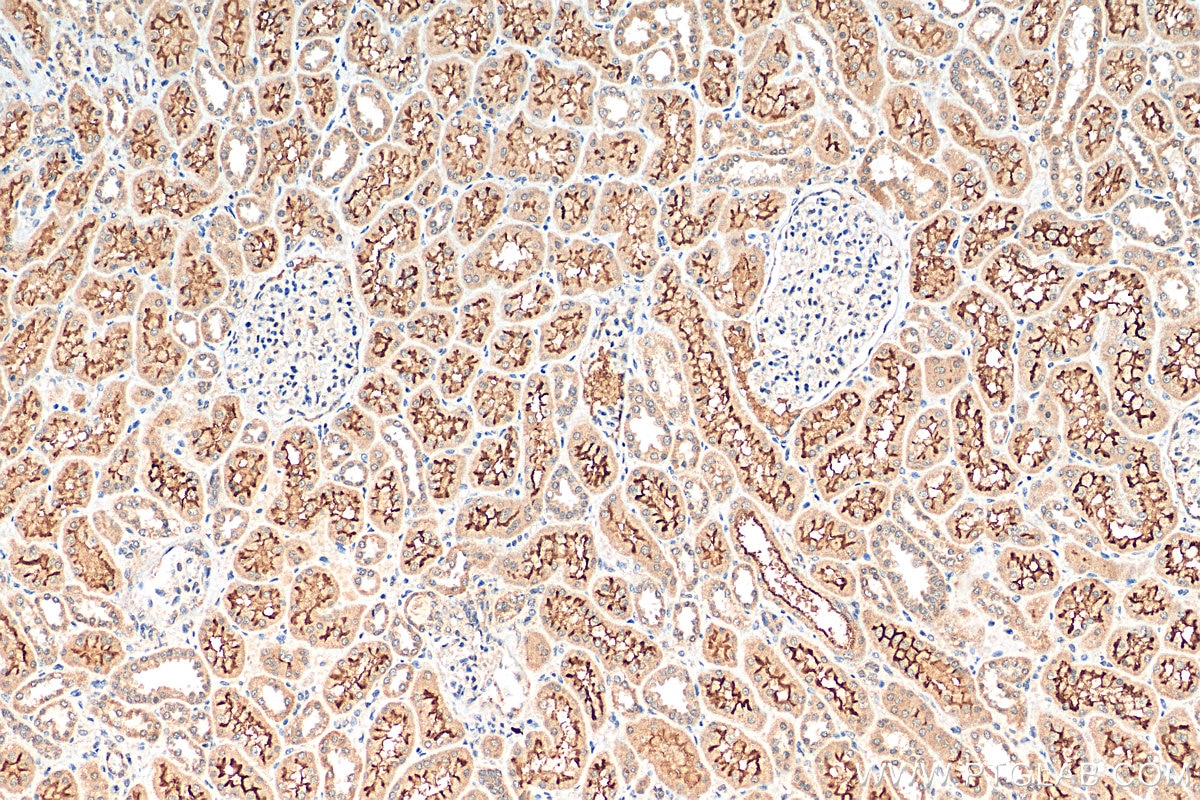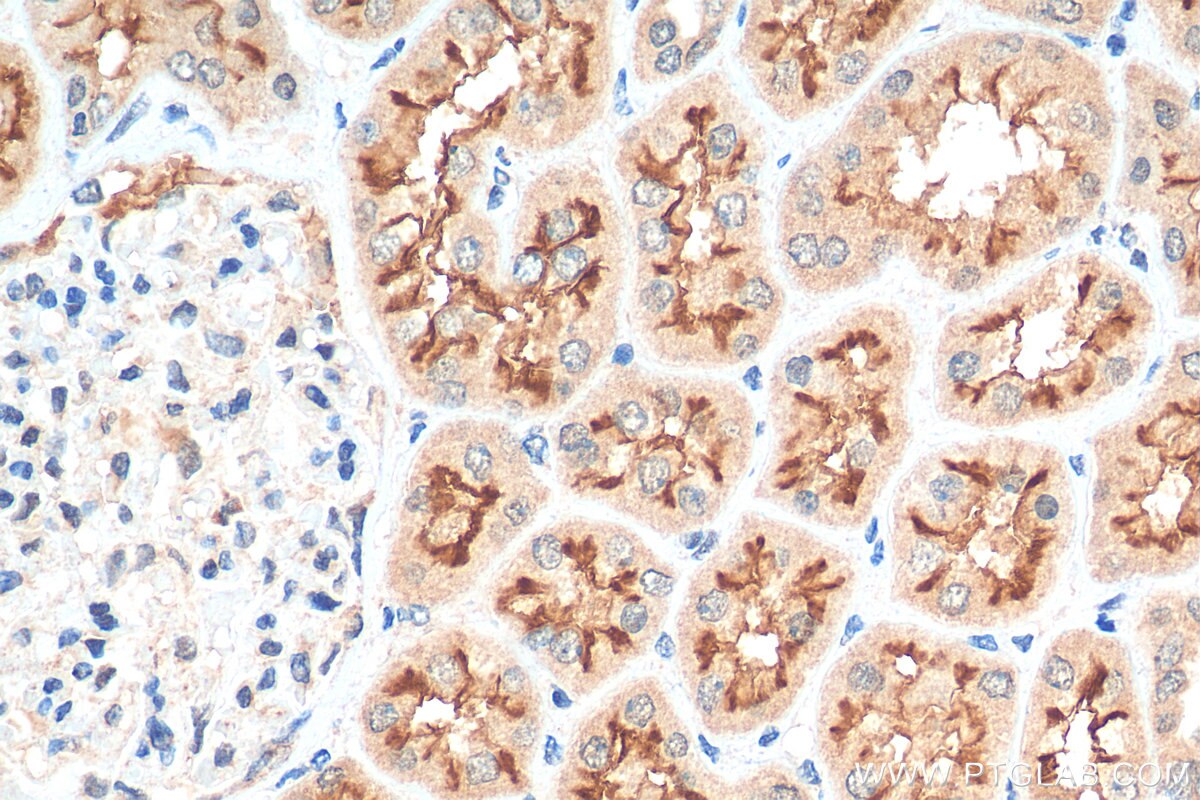- Phare
- Validé par KD/KO
Anticorps Polyclonal de lapin anti-OCTN2
OCTN2 Polyclonal Antibody for WB, IHC, IP, ELISA
Hôte / Isotype
Lapin / IgG
Réactivité testée
Humain, rat, souris
Applications
WB, IHC, IF, IP, ELISA
Conjugaison
Non conjugué
N° de cat : 16331-1-AP
Synonymes
Galerie de données de validation
Applications testées
| Résultats positifs en WB | tissu d'intestin grêle de souris, tissu de muscle squelettique de souris, tissu pancréatique de souris, tissu placentaire humain, tissu testiculaire de souris |
| Résultats positifs en IP | tissu de muscle squelettique de souris |
| Résultats positifs en IHC | tissu rénal humain, il est suggéré de démasquer l'antigène avec un tampon de TE buffer pH 9.0; (*) À défaut, 'le démasquage de l'antigène peut être 'effectué avec un tampon citrate pH 6,0. |
Dilution recommandée
| Application | Dilution |
|---|---|
| Western Blot (WB) | WB : 1:500-1:1000 |
| Immunoprécipitation (IP) | IP : 0.5-4.0 ug for 1.0-3.0 mg of total protein lysate |
| Immunohistochimie (IHC) | IHC : 1:50-1:500 |
| It is recommended that this reagent should be titrated in each testing system to obtain optimal results. | |
| Sample-dependent, check data in validation data gallery | |
Applications publiées
| KD/KO | See 1 publications below |
| WB | See 11 publications below |
| IHC | See 1 publications below |
| IF | See 1 publications below |
Informations sur le produit
16331-1-AP cible OCTN2 dans les applications de WB, IHC, IF, IP, ELISA et montre une réactivité avec des échantillons Humain, rat, souris
| Réactivité | Humain, rat, souris |
| Réactivité citée | rat, Humain, souris |
| Hôte / Isotype | Lapin / IgG |
| Clonalité | Polyclonal |
| Type | Anticorps |
| Immunogène | OCTN2 Protéine recombinante Ag9450 |
| Nom complet | solute carrier family 22 (organic cation/carnitine transporter), member 5 |
| Masse moléculaire calculée | 557 aa, 63 kDa |
| Poids moléculaire observé | 70-80 kDa |
| Numéro d’acquisition GenBank | BC012325 |
| Symbole du gène | OCTN2 |
| Identification du gène (NCBI) | 6584 |
| Conjugaison | Non conjugué |
| Forme | Liquide |
| Méthode de purification | Purification par affinité contre l'antigène |
| Tampon de stockage | PBS with 0.02% sodium azide and 50% glycerol |
| Conditions de stockage | Stocker à -20°C. Stable pendant un an après l'expédition. L'aliquotage n'est pas nécessaire pour le stockage à -20oC Les 20ul contiennent 0,1% de BSA. |
Informations générales
OCTN2 (Organic Cation/Carnitine Transporter 2), encoded by SLC22A5, is a ubiquitously expressed organic anion/cation transporter. OCTN2 plays a key role in absorption, tissue distribution and renal reabsorption of L-carnitine which is an essential cofactor in fat metabolism. Defects in the OCTN2 are responsible for primary carnitine deficiency. OCTN2 also transports some important respiratory medicines (such as tiotropium), and due to its expression in the lung, may influence the disposition and absorption of these medicines in the lung.
Protocole
| Product Specific Protocols | |
|---|---|
| WB protocol for OCTN2 antibody 16331-1-AP | Download protocol |
| IHC protocol for OCTN2 antibody 16331-1-AP | Download protocol |
| IP protocol for OCTN2 antibody 16331-1-AP | Download protocol |
| FC protocol for OCTN2 antibody 16331-1-AP | Download protocol |
| Standard Protocols | |
|---|---|
| Click here to view our Standard Protocols |
Publications
| Species | Application | Title |
|---|---|---|
Cell Metab Global Analysis of Plasma Lipids Identifies Liver-Derived Acylcarnitines as a Fuel Source for Brown Fat Thermogenesis. | ||
Food Funct Ferulic acid supplementation alleviates hyperuricemia in high-fructose/fat diet-fed rats via promoting uric acid excretion and mediating the gut microbiota | ||
Nutrients The Enhancement of Acylcarnitine Metabolism by 5-Heptadecylresorcinol in Brown Adipose Tissue Contributes to Improving Glucose and Lipid Levels in Aging Male Mice | ||
Front Pharmacol L-carnitine prevents lenvatinib-induced muscle toxicity without impairment of the anti-angiogenic efficacy | ||
J Neurochem Identification of drug transporters contributing to oxaliplatin-induced peripheral neuropathy.
| ||
Toxicol Lett Lenvatinib causes reduced expression of carnitine/organic cation transporter 2 and carnitine deficiency in the skeletal muscle of rats. |
